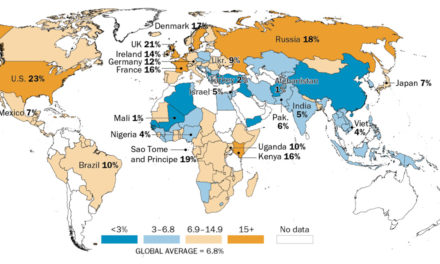According to a national poll released C.S. Mott Children’s Hospital, 67% of parents report “overuse of devices/screen time” is one of their biggest health concerns for their kids.
As our colleagues at Plugged In and on our parenting team regularly caution, screen time is a tricky issue to navigate for many families. On one hand, children need to understand and use technology to navigate our modern world. On the other hand, parents fear excess screen time negatively impacts their child’s development and mental health.
Some effects of screen time are easy to understand and catalogue, like how blue light from screens decreases kids’ sleep if viewed before going to bed. These physical effects are important to understand, but much of screens’ power lies in the way they construct our society.
Screens, regardless of content they’re showing, can teach children to value the superficial and crave the immediate. Parents can only combat these messages when they understand how they’re communicated through our technology-saturated culture.
Here are a couple things for parents to consider you monitor your children’s screen time:
Entertainment is King
Screens can teach people to value entertainment above all else.
In 1985, famed cultural critic and scholar Neil Postman published his book Amusing Ourselves to Death analyzing the effect of television on American society.
Different types of media, like newspaper, TV or radio, are good at communicating some content and not others, explains Postman — you wouldn’t use smoke signals to teach philosophy, for example. TV, and other image-based media, best communicate entertainment, so everything they show, from movies to newscasts, is built to be, above all, amusing.
As TV became an essential part of the American household in the late 20th century, people began to crave entertainment in all aspects of their lives. Industries adjusted accordingly — businesses invested in eye-catching commercials, newscasters reported on disaster after disaster in 30 second intervals and politicians’ physical appearances started affecting elections.
Postman wrote his book in the 1980s, but people value entertainment more than ever before. Nicholas Carr, author of the award-winning book The Shallows: What the Internet is Doing To Our Brains, explains that screens train our brains to expect new, interesting material at supersonic speeds.
Christians, by definition, value Christ above all and measure our lives by what honors Him. Prioritizing entertainment places our own pleasure over Christ.
We might not realize that entertainment occupies such a place of power in our lives. Children who grew up with screens don’t know anything other than the instant gratification technology provides.
It’s up to parents to model biblical values that screens subvert, like humility, hard work and peace, and emphasize God has a deeper, more meaningful purpose for each child’s life than simply having fun.
Screens are Addictive
Screens exert such powerful influence over our value systems and culture because they are addictive.
Americans spent an average of nine hours and forty-five minutes per day on a TV, computer or phone in 2020, according to a national survey cited in The Shallows — up more than an hour and a half from 2015. Carr attributes this increased usage to smartphones, citing one 2015 study which found people use them an average of five hours per day.
People spend so much time on smartphones because they’re “the most interesting thing in the world,” says Carr. Every day, our brain filters through a barrage of stimuli, giving preference to the “new or unexpected, [the] pleasurable or otherwise rewarding, [the] personally relevant and [the] emotionally engaging.”
The smartphone provides us with all four.
It’s not surprising, then, that Carr sites several studies showing the mere presence of a smartphone —even turned off in a pocket or set on a desk — significantly reduces people’s social and academic performance.
Parents should work to provide kids with diverse, unelectronic stimuli, which is critical to developmental health. More importantly, parents should make sure their children practice entertaining themselves without external stimulation — boredom is essential for growing brains to learn imagination, creativity and how to think abstractly.
Technology Can’t Teach Empathy
A 2019 study published in the Journal of Research in Innovative Teaching and Learning emphasizes what some — but not all — parents may know intuitively: technology can’t teach kids empathy.
Infants start learning empathy by observing the eyes and mouths of their parents. As children grow and begin to interact with others, imaginative games help them understand and predict other people’s needs.
The study cites research showing kids can’t recognize and mimic the faces and movements of people on screens like they can with humans. Additionally, it concluded children who play online imaginative games instead of playing with other children won’t develop appropriate social skills and empathy.
That’s not to say that children should never play computer games! In fact, the study found online imagination games can be used to teach children with autism spectrum disorder social cues — as long as an adult or peer helps contextualize and explain the importance of social rituals and interactions.
Technology can be used as a tool to further the development of children — but it can’t be used as a replacement for human teaching and interaction.
Parents have a responsibility to ensure their children aren’t being babysat by screens, which can stunt their social and communicative development.
Conversation is Out of Style
Sherry Turkle, a sociologist, professor and founding director the MIT Initiative on Technology and Self, argues there’s “a crisis of empathy” among children — not because of screens themselves, but how they’ve changed our relationships.
In her book Reclaiming Conversation: The Power of Talk in a Digital Age, Turkle distinguishes between conversation and connection. Face-to-face conversation between people, she argues, requires participants to listen well and learn to read facial expressions and body movements, which are foundational to empathy. Conversation also gives people fodder for self-reflection, which shapes self-perception and identity; she calls the conversations we have with ourselves “the cornerstone of early development.”
According to Turkle, children are increasingly choosing connection over conversation, which they describe as awkward, inconvenient, and difficult to end. Connection refers to the kinds of relationships we form through screens, where each participant controls the amount of information they share.
Preferring technological connection short-circuits all the good work conversation does for our brains. The speed of technology, and our desire for constant stimulation, encourages people to talk faster and expect faster answers. They choose more superficial topics to accommodate faster interactions. These connections require listening or empathy, because each person has control over what they share and how long the interactions last. They stop having conversations with themselves because they have no new material for self-reflection, and because boredom is a problem solved with more stimulation and connection
Turkle asserts the emotionally underdeveloped kids observed by parents and teachers today who form superficial relationships, can’t directly address others and don’t understand how their actions affect others are a result of screens making conversation seem old fashioned.
Turkle points out that children who’ve grown up with technology don’t understand what they’re missing when they prefer connection over conversation. The only way they can understand the value of these deeper interactions is if their parents demonstrate it for and practice it with them.
What Do We Want Our Kids to Value?
Screens are affecting the brains and hearts of children — teaching them to value entertainment above all, expect endless gratification and become distracted when its taken away, expect control in relationships, and never know or learn to consider the thoughts and feelings of others.
Each of these are detrimental to human development and anathema to the Christian faith, which teaches us to love Christ above all and love our neighbors as ourselves.
Parents’ arguably greatest weapon against the negative effects of a screen-filled society is their presence and example. Be a part of your children’s lives. Play with them. Teach them biblical values through the way you live your life — free from addiction to screens and full of Jesus Christ.
Related articles and resources:
Screen Use, Social media Are Top Health Concerns for Parents
Plugged In Parent’s Guide to Today’s Technology
Teens Using Media: Why Social Media Shouldn’t Define Your Teen
Do Your Kids Have Healthy Phone Habits?
Helping Kids Process Violence in the News and Social Media
Cultivating Wise Tech Habits in Your Teen (broadcast)
Protecting Our Kids: Should We Raise the Social Media Minimum Age to 18?
Photo from Shutterstock






